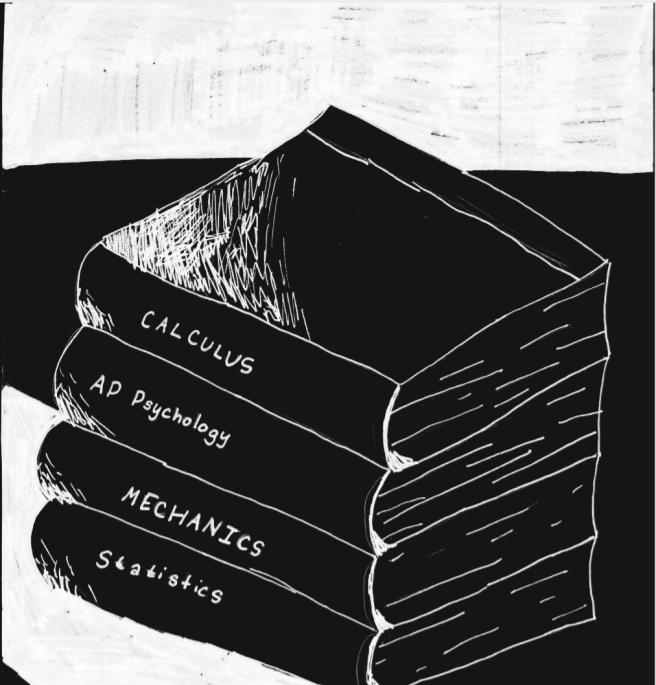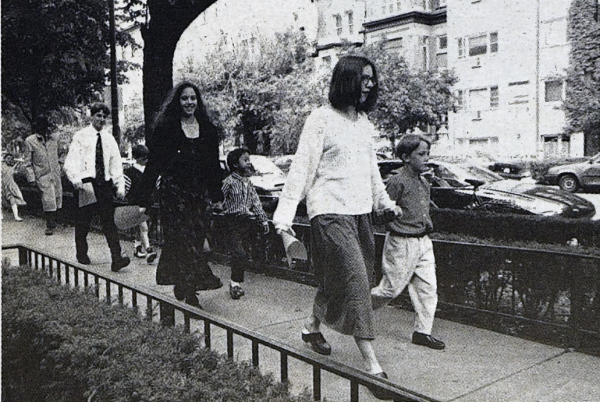Honors Mania: Has Latin Caught It?
Honors courses can serve as a source of stress for students.
Honors courses: high school students’ infamous obsession. Currently, almost 75 percent of Upper School students take at least one honors or Advanced Placement (AP) course, with over one-sixth of courses given one of the two distinctions. If these numbers seem high, it’s because they are—a fact Latin isn’t alone in. In a time where honors courses and the culture surrounding them has simultaneously become more prevalent and been called into question extensively, why are Latin students choosing honors classes?
A common reason for choosing accelerated courses is that “challenging work can be enticing,” as senior Ava Rosenow put it. However, many students feel pressure to take honors courses outside of what they might find stimulating.
This pressure can come from a variety of sources, many surrounding the idea that taking honors classes looks better when applying to college. Freshman Aye Mya Mon said, “[Taking honors courses] shows how well I do and how hard I work, and if colleges see that, they would most likely accept me.”
Teachers have noticed students’ tendency to take honors or AP courses for transcript or college-related reasons as well. Upper School English Department Chair Kate Lorber-Crittenden (LC) said, “There are times where it’s absolutely appropriate that we feel pressure and that we feel some amount of healthy stress.” She added, “I think there’s a lot of unhealthy stress at Latin and around grades and class selection sometimes.”
In many cases, this pressure hinders students from finding an environment that appropriately challenges them. “I think the success that you find when you can take some risks and feel supported is really high payoff,” Ms. LC said. To students, despite Latin’s lack of publicized grade-point averages (GPA), the stress surrounding transcripts and GPA bumps can often serve as an influence away from finding this high-payoff experience.
However, the honors pressure does not always start with students; Latin families often show great interest in classes and grades—particularly when it comes to how those details look on a transcript. “I’m taking an [Independent Study Program] this year instead of taking one of the honors advanced bio classes,” Ava said. “One of the questions my parents had when I submitted my ISP form [was] how it affects your GPA.”
This pressure is particularly unhealthy as certain departments give students little autonomy when choosing classes. “If you come up from the Middle School, math is really difficult because you’re placed [on] a math [track] in fifth grade,” Ava said. “I think the initial process is fine, but I think that Latin could do with more fluidity if your proficiency changes over time.”
In the spring, Latin does offer an appeal process for those looking to switch their math or science placement for the next academic year. However, placements are often difficult to successfully overturn, leaving many students feeling like they’re back at square one.
Students who come to Latin after fifth grade face their own set of challenges in the math placement process. Junior Carmen Quinones, who came to Latin in ninth grade, said, “There is a discrepancy between how they’re doing it.” She continued, “For lifers or people who’ve been at Latin at least since eighth grade, it’s a lot easier to get into these courses.”
Latin gives new ninth graders a placement test to determine whether they take Algebra I, Algebra II, or Honors Algebra II during their freshman year. Students from Latin’s Middle School, on the other hand, are placed into Algebra II, Honors Algebra II, or Honors Geometry.
This inequity does not end in ninth grade—it follows students throughout their time at Latin. “[Students who take geometry during their freshman year] get to take multivariable and all these other math courses that people who might be equally smart but came from a different school can’t,” Carmen said.
However, math isn’t the only department frustrating Latin students—the humanities have taken the heat as well. The English Department does not have honors classes and the History Department has shifted to an earned honors system. Although these new systems for awarding honors have come with their positives, many students resent the transition.
“For people who really excel specifically in English or history, they might have some more trouble,” Ava said. “If that’s your really strong subject, then you’re placed at a disadvantage by Latin’s curriculum.”
Yet, having honors courses does not guarantee that these excelling students get credit for their work. Upper School history teacher Matthew June said, “What we were finding is that you were ending up with some students in honors classes that really weren’t interested in doing honors work or were generally unhappy.” He continued, “Then you were having some students that didn’t get placed in honors that were doing work that was far above and beyond even an honors level.”
Although students and faculty may disagree on the necessity of honors courses, most community members acknowledge the unique environment Latin provides in terms of a rigorous and engaging curriculum. Carmen said, “We have such a higher standard of the rigor of our classes that we don’t need to be like ‘this is this.’”
Latin students are lucky enough to have rich academic experiences, no matter which classes they take. Dr. June said, “That’s what we’re here for, is to be doing what most people would consider honors level work from the first day of ninth grade till the end.”

Scarlet Gitelson (‘26) is delighted to be serving as one of this year’s Editors-in-Chief. Using her writing, she seeks to promote connection and discourse...




















































